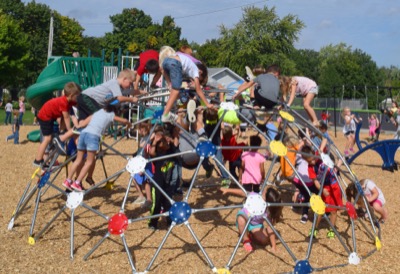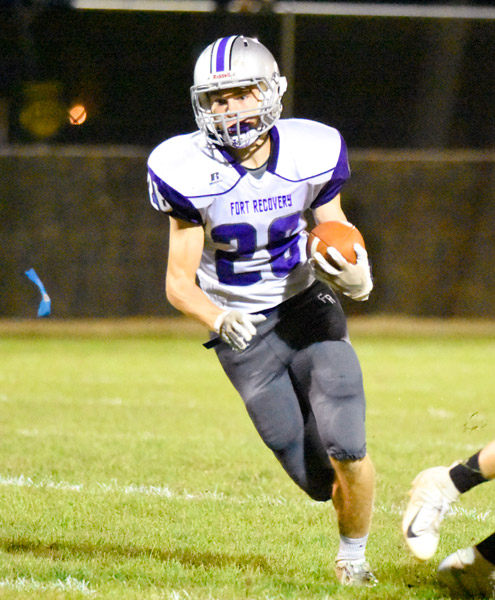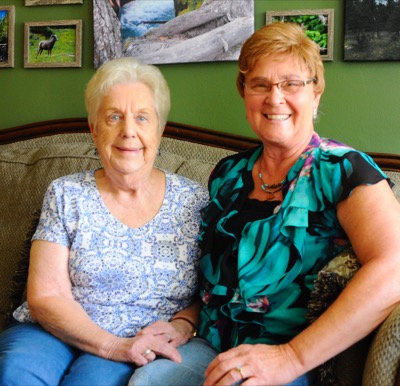Thursday, October 4th, 2018
Officials work to safeguard local elections
By William Kincaid
CELINA - Mercer County elections officials say they're doing all they can to stay on top of potential cybersecurity threats to the county's voter-registration system with assistance from various organizations.
They also say they have guarded and will continue to vigorously protect the integrity of all elections.
"It's so much in the news, and we want to make sure that our voters are confident in the fact that their vote is being counted the way they cast it and that it's going to be reported correctly," board of elections director Laura Bruns said. "We want voters to be very secure in that knowledge."
"People are surprised when they do find out what we do ahead of time of the election," deputy director Deb Sneddon added. "They think it's a two-day-a-year job when there's actually a lot more that goes into it than just showing up on Election Day. A lot happens behind the scenes.
Bruns and deputy director Deb Sneddon said they took a cybersecurity class for elections officials through The Center For Technology and Civic Life that Bruns characterized as a nonprofit organization that assists public organizations.
Also, the board of elections in May moved to accept U.S. Department of Homeland Security services, among them a vulnerability scan of the county's network.
"They're doing all kinds of things … penetration testing, they're doing phishing analysis," Bruns said. "It's a lot of technical things that they're working with our IT department on."
Officials also registered with the Elections Infrastructure Information Sharing and Analysis Center.
"They gather information about any kind of threats, any kind of breaches, any kind of potential for vulnerability in all kinds of different software programs and different things that people are using and they share that information," Bruns said.
Bruns and Sneddon said they want to assure the public that they take the issue of cyberthreats seriously and are taking measures to protect the voter-registration system.
"We're taking this seriously. We're not just ignoring it. We're not saying, 'Oh, nobody is going to mess with little old Mercer County.' We don't know, and we want to be prepared, no matter what happens," Bruns said.
The two touched upon potential threats to the county's network.
"There's hacking, which is when they just get in. There's breaching, when they get in and gain access to information and then leak that information," Bruns said.
There's also ransomware and designated denial of service attacks that can result in the loss of control of systems and websites, she continued.
In addition to staying abreast of cyberthreats, officials maintain the security of actual voting equipment. Voting machines and the tabulation computer are not connected to the Internet, the two stressed.
"The computer that we use to tabulate voting results has never been connected to the Internet, will never be connected to the Internet," Bruns said.
"That's a closed network inside of our office," Sneddon was quick to point out.
Each voting machine is put through logic and accuracy testing and is sealed.
"Every time a voting machine is opened or closed, a new seal is put on that voting machine just to verify that nobody's tampering with that particular voting machine," Bruns said.
Moreover, an overall bipartisan approach to all aspects of preparing for and executing elections is a safeguard against improprieties, Bruns said. For instance, the room that houses the voting machines contains three locks. In addition to the door key, Bruns holds the Republican key and Sneddon holds the Democratic key to open it.
"All of those voting machines and the tabulation server are all under lock and key and requires a Democrat and a Republican to be in the room together to access any of that stuff," Bruns said. "Just the bipartisan nature of our office is a security feature in and of itself because it requires both of us to do almost everything that we do."
The board, staff and poll workers also are all bipartisan.
That carries over to Election Day, Sneddon said.
"That's how the teams are supposed to work. They're appointed as bipartisan teams, no more than two from each party, to a precinct and they work together on Election Day as well," Sneddon said about poll workers.
Sneddon then pivoted to the subject of absentee ballots. She said she wants to dispel the notion that absentee ballots are counted only when a race is close.
Absentee ballot results are, actually, counted first after the polls close.
"We upload those results promptly at 7:30 p.m., and they're reported to the Secretary of State at 7:45 p.m., and they're the first results to be posted," Sneddon said.
As of Wednesday, the board had received 2,193 applications for absentee ballots. Those ballots will be mailed out beginning next Wednesday, they said.
The voter registration deadline for the Nov. 6 election is 9 p.m. Tuesday.





